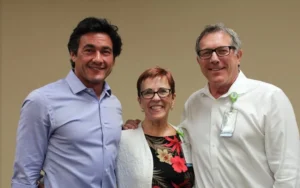Dylon Peterson’s case shocked the community of Vancouver and left a lasting impact. Understanding the details of the case is crucial for grasping its significance and the broader implications it holds. In this article, we will delve into Peterson’s background, the crime he committed, the legal proceedings that followed, and the aftermath, providing a comprehensive overview for readers.
Background of Dylon Peterson
Dylon R. Peterson’s early life and upbringing are not extensively documented. Before the tragic incident that defined his future, little is known about his personal life, education, or any factors that may have influenced his actions.
The Crime Committed by Dylon Peterson
On a fateful January morning in 2007, Peterson made a distressing 911 call, admitting to the murder of two individuals. The victims were identified as 15-year-old Mathew Eric Nagle and his mother, Sandra J. Torell, aged 45.
Investigations revealed that Peterson, then a student at the Le Cordon Bleu Program at Western Culinary Institute in Portland, had been residing with the Nagle family in Vancouver, Washington. The murders occurred in the duplex where Mathew lived with his father and brother.
Legal Proceedings and Sentencing
Following his arrest, Peterson was charged with two counts of first-degree murder. Court documents indicated that he acted alone in the stabbing deaths of Nagle and Torell. In an arrangement with the prosecution, he pleaded guilty to avoid facing aggravated murder charges, which could have led to the death penalty.
In May 2007, Peterson was sentenced to over 57 years in prison, reflecting the severity of his crimes and their impact on the community and the victims’ relatives. Throughout the legal process, Peterson showed no behavior in court that could provide insight into his motives or state of mind.
Impact on the Community and Aftermath
The crimes committed by Dylon Peterson left a deep mark on the Vancouver community, particularly on the friends and family of the victims. During the sentencing, family members expressed their grief and the void left by the loss of their loved ones. The case serves as a somber reminder of the tragic outcomes that can result from a combination of mental health struggles and a lack of intervention.
Lessons Learned and Looking Forward
As the legal chapter on Dylon Peterson’s crimes comes to a close, the broader conversation it ignites about mental health, crime, and justice remains open and ongoing. This case underscores the importance of recognizing and addressing mental health issues and the need for the criminal justice system to balance punishment with rehabilitation.
Conclusion
The case of Dylon Peterson is a tragic reminder of the consequences of violent actions and the importance of understanding the complexities of such cases. By examining the details of this case, we gain insight into the impact it had on the community and the lives of those involved. It serves as a sobering reminder of the need for compassion, understanding, and vigilance in addressing mental health issues and preventing such tragedies in the future.
FAQs
Q1: What was the impact of Dylon R. Peterson’s crime on the community? A1: Peterson’s crime had a profound impact on the community, causing shock and devastation among residents and shattering their sense of security.
Q2: How long was Dylon R. Peterson sentenced for his crimes? A2: Peterson was sentenced to more than 57 years in prison for his crimes, following a plea deal in which he pleaded guilty to two counts of first-degree murder.
Q3: What was the emotional scene in the Vancouver court during Peterson’s sentencing? A3: The court scene was emotional, with family members of the victims expressing their grief and the impact of Peterson’s actions on their lives.
Q4: What plea deal did Dylon R. Peterson agree to in his case? A4: Peterson agreed to a plea deal in which he pleaded guilty to two counts of first-degree murder, avoiding the possibility of facing aggravated murder charges and the death penalty.
Q5: How did the victims’ families respond to Peterson’s sentencing? A5: The victims’ families expressed their grief and the void left by the loss of their loved ones. They also showed forgiveness and empathy towards Peterson’s family, acknowledging their shared pain.
















+ There are no comments
Add yours